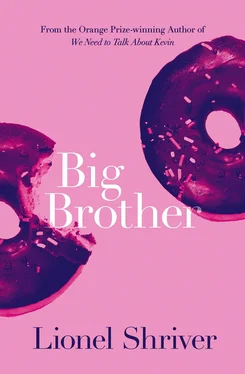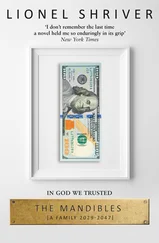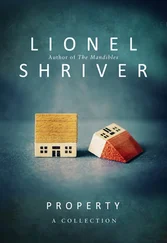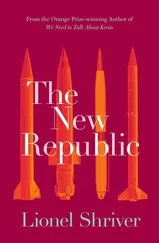“Is that so?”
I wasn’t sure what I’d said was true. “I mean, I’d really appreciate your being here.”
“So you are asking.”
“Pleading.”
“That’s different.” He wiped butter from his mouth with his sleeve. “The guy was here once before, right?”
“A little over four years ago. Do you remember him?”
“Got a dim recollection of some blowhard. Kept yakking about bands nobody’s ever heard of. Couldn’t remember my fucking name.”
The characterization stung. “Edison has a son somewhere, but his ex got full custody when the boy was a baby. So your uncle doesn’t have much experience talking to kids—”
“Got the impression the problem was the way he talked to adults. He was boring the shit out of everybody.”
“He’s a very talented man who’s led a very interesting life—much more interesting than mine. This is a rare opportunity to get to know him.” I was speaking to a brick wall.
I hadn’t quite cracked my stepson. Tanner had a blithe sense of entitlement, a certainty that he was destined for an undefined brand of greatness. Though already a month into his senior year of high school, he had yet to evince the slightest interest in the college education for which I was expressly saving the proceeds from my business. He wanted to write, but he didn’t like to read. That summer the boy had announced that he’d decided to become a screenwriter as if doing Ridley Scott a personal favor. I’d wanted to shake the kid; had he any idea the poor odds of breaking into Hollywood even as a runner? Uncertain whether my impulse was kind or cruel, I’d held my tongue. I had pointed out that his grammar, punctuation, and spelling were atrocious, but Tanner imagined that word processing took care of all that silly prose-style folderol. Anyway, he’d said, for screenwriting you had to know how people really talked , for which a grasp of proper grammar was only an impediment. Okay, I’d thought begrudgingly, one point for Tanner. Throughout his adolescence, Fletcher and I had praised the boy’s every poem, extolled the creativity of his half-page short stories. Parents are supposed to. But, to my horror, Tanner had believed us.
Tall, pale, and unmuscled, the boy had that undernourished look that girls so often fall for. His dark hair was painstakingly disheveled. The clashing layers of his clothing showed like peeled-back layers of old wallpaper: a checked sweatshirt over dangling striped shirttails, parted to reveal the elastic of plaid boxers rising above his slumped, unbelted jeans. Most of his friends stopped by in the same state of harlequin half-undress. Tanner carried himself with his hips canted forward, and he’d recently developed a disconcerting habit of touching himself while he talked—smoothing palms down his hips, or up his rib cage to his flat chest. He may have been chronically unimpressed, but that skepticism did not extend to himself, and I was amazed how readily his peers and teachers alike took his superficial assurance at face value.
I had to watch myself with Tanner. When I noted that “girls” would fall for his looks, I should have clarified: at his age, I’d have been one of those girls. It’s not that I was tempted to be flirtatious with him; after all, I could still discern traces of the wary, closed-down ten-year-old I first inherited, who had to be coaxed into the open like a cat from under a bed. Nevertheless, I recognized my teenage stepson as just the sort of poised, hip, self-convinced young man with whom I was besotted in high school, where I’d huddled the halls praying above all to be left alone. (My classmates at Verdugo Hills were more than happy to oblige. Unlike Edison, I continued to go by “Halfdanarson,” the surname with which I was born; I never let on that I was Travis Appaloosa’s kid.) What I had to watch with Tanner, then, was resistance. It was tempting to parade before myself how as a grown woman I no longer fell for such a huckster, and I didn’t want to indulge a too-ferocious, slightly vicious determination to see through him.
Viewed from the impunity of marriage, the penchant for unrequited passion that persisted through my early thirties had paid off. The likes of Tanner might not have known I was alive, but if you never spoke to the young man he would never reveal his disillusioning enthusiasm for the Bee Gees. Having nursed my loves in private, I had kept them inviolate, and was now spared looking back at a string of deranged entrancements with mortified incredulity. Marathon devotion had developed my emotional endurance, in contrast to Tanner’s sprints with three or four girlfriends a year. I feared that my stepson wasn’t learning to love women but to harbor contempt for the women who loved him.
“Glop that much jam on your toast,” Fletcher grunted en route to a glass of water, “might as well be eating cake.”
“Whole wheat!” said Tanner. “And he still won’t give it a rest.”
I’m sorry, but I don’t eat daaaaaaaaairy! Our thirteen-year-old, Cody, had abandoned her piano practice to tug the pull-string doll propped on the dining area’s middle shelf in case her father needed razzing. The doll was a first effort from four years before, and then a mere whimsy of a Christmas present. I’d sewn it from scratch on the heels of Fletcher’s sudden health kick. The crafts project had doubled as therapy, embodying my struggle to keep a sense of humor about the fact that he would no longer come near my celebrated manicotti.
The stuffed ragamuffin wore a miniature version of Fletcher’s standard black fleece, to which I’d glued his signature dandruff of sawdust. The doll had stovepipe black jeans, and other than a few teasing threads that spiked upright it was bald. The calf-high leather boots were constructed from the tongues of a fatigued pair of the life-size kind and soled with a retread strip that had fallen off a truck on Highway E36. I’d fashioned the wire-rim glasses out of aluminum paperclips and stitched a permanent scowl of disapproval into the forehead. One hand clutched a chisel (really a jeweler’s screwdriver), the other a square of foam rubber that I’d had to explain was tofu. The fabric was starting to fray, but it had become a matter of professional importance that the mechanism inside was still going strong.
Shoes off the rail, Tanner! The Boomerang took me three months!
Since I’d involved my best friend Oliver Allbless in the joke from the beginning, it was his voice I’d recorded, and he’d proven adept at mincing his tones into the huffy and judgmental. The electronic device buried in the torso included twenty edicts and exclamations. Little had I known that my mischievous little handicraft would soon become a monster.
The Fletcher doll was an instant hit with our kids, to whom the mocking recordings of their father’s oppressive decrees helped to endear their stepmother. Taking the teasing good-naturedly, Fletcher had been touched by the scale of my effort, down to engaging Oliver to design an updated digital technology. (Not much better than rubber bands, the governor belts that drove the plastic records and turntables inside the old Chatty Cathys from the 1960s had been prone to snap—which is why few of these collector’s items still functioned.) Dinner guests never wearied of pulling the string. The following year, Solstice had begged me to fashion a similar caricature of her new boyfriend, whose incessant repetition of faddish expressions like “Good to go!” and “That’s my bad!” was driving her crazy. I’d been reluctant. I was still running Breadbasket. To work the same magic, the doll would have had to capture the boyfriend’s build and dressing habits. Sensing my hesitation, Solstice offered to pay. I cited a price high enough to put my sister off, but she attached photographs and a list of pet phrases to an email the very same day.
Читать дальше












